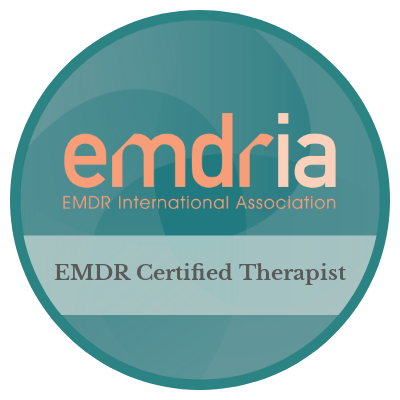Do I have to talk about my childhood?
This is a common EMDR question. The answer depends on your goals. I offer two types of EMDR. One version – EMDR RELIEF – does not require it. The main thing about this version is that sessions fit within the traditional 50-minute counselling hour while EMDR HEAL is regular EMDR that was designed for 1 ½ hour sessions. Extended sessions usually begin at the third session as this is often where we get into phases 4-7 of the therapy. Completing these phases takes time, but the great news is that you can usually end treatment quicker because more is covered with longer sessions. You will more often have “complete sessions” this way, which means you’ve reached full resolution. With EMDR RELIEF’s shorter sessions, we may have to cut corners somewhere and full resolution may not happen. But then it might. Everyone is different. The main reason for this version is to make EMDR possible for people who don’t have benefits to subsidize sessions.
With EMDR RELIEF you can still bring up things that happened in childhood, but you don’t have to. We can rather do a process that was termed EMDr, a version that contains processing to events, rather than stimulating your entire information-processing system. Some people want to process a recent event, such as a car accident. They might have found that they were well adjusted before the accident but for some reason can’t get over it. EMDR RELIEF might be good for them. However, if they were not well adjusted before the car accident, then there is a choice. They can still experience relief of symptoms that may be keeping them from driving, for example. One thing to consider is that the first related trauma is said to hogtie us – impeding us in our current situations and relationships.
So our childhood might be more relevant than we thought. Sometimes we also rationalize that our parents did the best they could, and a defense mechanism could be to want to leave our parents out of it. It’s not about villainizing them but to realize how we might still be affected by things that happened so long ago because of how they were encoded – stored in our bodies. Early experiences are usually at the root of current issues. Attachment patterns are the blueprint of our relationships. Essentially, these early experiences set the foundation for the way we see ourselves and the world.
EMDR also is not really a talking therapy. So, although you may say things about your childhood, you are mostly just observing what you feel now that you hold that previous event in mind. And it’s always up to you to decide what to vocalize. Your EMDR therapist just needs to know that things are shifting or if they are not so she can help move things along and get you feeling better and thinking differently about whatever event, experience, or fear or worry that you are working on. Book a free consult to learn more.


